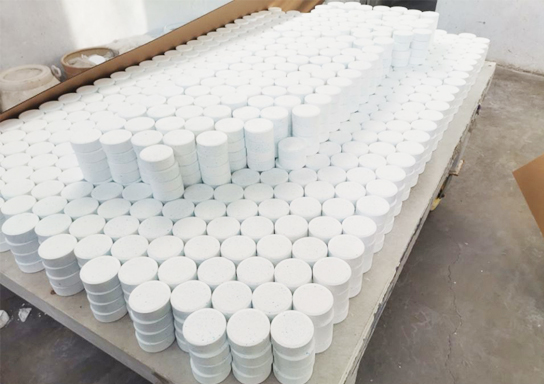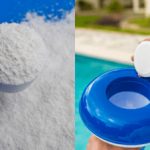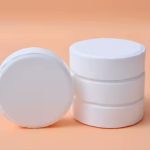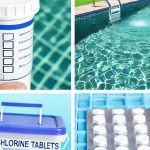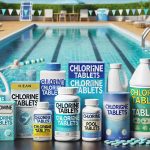The Importance of Proper Chlorine Levels in Pool Maintenance
Proper chlorine levels are essential for maintaining a clean and safe swimming pool. Chlorine plays a crucial role in disinfecting the water and preventing the growth of harmful bacteria and algae. By maintaining the right chlorine levels, you can ensure optimal water quality for swimming. This not only keeps the water clear and inviting but also helps to prevent infections and illnesses caused by bacteria. Whether you have a small backyard pool or a large commercial one, understanding the importance of proper chlorine levels is key to enjoying a clean and healthy swimming experience.
Understanding the Role of Chlorine in Pool Maintenance
Chlorine is a vital component of pool maintenance, serving several important purposes. By understanding its role, you can effectively maintain your pool and ensure a safe swimming environment.
The Purpose of Chlorine in Pool Water
Chlorine acts as a powerful disinfectant in pool water, effectively killing bacteria and other microorganisms that can pose health risks to swimmers. It also helps prevent the growth of algae, which can make the water cloudy and slippery. Additionally, chlorine plays a crucial role in oxidizing contaminants such as sweat and urine, keeping the water clean and clear.
The Ideal Chlorine Levels for Pool Maintenance
Maintaining the ideal chlorine levels is crucial for effective pool maintenance. The recommended range for chlorine levels in pools is between 1.0 and 3.0 parts per million (ppm). Higher chlorine levels can lead to skin and eye irritation for swimmers, while lower levels may result in inadequate sanitization. Regular testing of chlorine levels is essential to ensure they remain within the optimal range. By monitoring and adjusting chlorine levels accordingly, you can provide a safe and enjoyable swimming experience for everyone using your pool.
Choosing the Right Chlorine Tablets
When it comes to selecting chlorine tablets for your pool, there are several factors to consider. By taking these factors into account, you can ensure that you choose the right tablets for effective pool maintenance.
Factors to Consider When Selecting Chlorine Tablets
The first factor to consider is the size of your pool and its water capacity. Larger pools will require more chlorine tablets to maintain the appropriate chlorine levels. It’s important to calculate the volume of your pool accurately to determine the number of tablets needed. Generally, a 3-inch chlorine tablet can sanitize up to 5,000 gallons of water.
Another consideration is the type of chlorine tablet suitable for your pool. There are two main types: stabilized and unstabilized chlorine tablets. Stabilized tablets contain additional chemicals that help protect chlorine from being degraded by sunlight, making them ideal for outdoor pools. Unstabilized tablets, on the other hand, are better suited for indoor pools where sunlight exposure is minimal.
Additionally, climate and weather conditions in your area can affect chlorine consumption. Warmer climates and higher temperatures may require more frequent use of chlorine tablets to maintain proper sanitization levels.
Determining the Number of Chlorine Tablets
To determine the number of chlorine tablets needed, you’ll need to consider your pool’s water capacity and the concentration of chlorine in each tablet. Calculate the number of tablets based on these factors, keeping in mind that different brands may have varying concentrations.
It’s also important to consider the dissolution rate of the tablets. Some tablets dissolve more slowly than others, which means you may need fewer or more tablets depending on their dissolution rate. Consult the manufacturer’s guidelines for specific dosage recommendations based on their product.
By carefully considering these factors and following manufacturer recommendations, you can choose and use the right amount of chlorine tablets for your pool, ensuring effective sanitization and optimal water quality.
Tips for Maintaining Optimal Water Quality
To ensure optimal water quality in your pool, there are a few important tips to keep in mind. By following these guidelines, you can maintain a clean and safe swimming environment.
Regular Testing and Monitoring
Regularly testing and monitoring the chlorine levels in your pool is essential. Use a reliable pool water testing kit to check the chlorine levels regularly, ensuring they remain within the recommended range of 1.0 to 3.0 parts per million (ppm). This will help ensure effective sanitization and prevent any potential health risks.
In addition to chlorine levels, it’s important to monitor the pH levels of your pool water. pH affects the effectiveness of chlorine, so it’s crucial to keep it balanced. If necessary, adjust the pH levels using appropriate chemicals as recommended by the testing kit or a professional.
Furthermore, test for other chemical levels such as alkalinity and calcium hardness. These factors contribute to balanced water chemistry and can affect the overall quality of your pool water. Maintaining proper chemical balance will help prevent issues like scaling or corrosion.
Proper Storage and Handling of Chlorine Tablets
When it comes to storing and handling chlorine tablets, there are a few key considerations for maintaining their effectiveness and safety.
Firstly, store chlorine tablets in a cool, dry place away from direct sunlight. Exposure to sunlight can degrade the tablets and reduce their potency over time. Keep them in an airtight container or bucket specifically designed for storing pool chemicals.
When handling chlorine tablets, always wear protective gloves to avoid direct contact with your skin. Additionally, avoid touching your eyes or face while handling them. Chlorine tablets are highly concentrated chemicals that can cause irritation if mishandled.
Lastly, follow the manufacturer’s instructions for safe handling and disposal of chlorine tablets. Some manufacturers may provide specific guidelines on how to handle spills or dispose of unused tablets properly. By following these instructions, you can ensure both your safety and environmental responsibility.
By regularly testing and monitoring your pool water’s chemical levels and following proper storage and handling practices for chlorine tablets, you can maintain optimal water quality in your pool throughout the swimming season.
Ensuring Clean and Safe Swimming with the Right Amount of Chlorine Tablets
Maintaining proper chlorine levels in your pool is crucial for ensuring clean and safe swimming conditions. By calculating the appropriate number of chlorine tablets based on factors such as pool size, water capacity, and climate, you can achieve optimal water quality. Regular testing and monitoring of chlorine levels, along with proper handling and storage of chlorine tablets, are essential for effective pool maintenance. By following these guidelines, you can enjoy a clean and inviting pool while providing a safe swimming environment for yourself, your family, and your guests.
